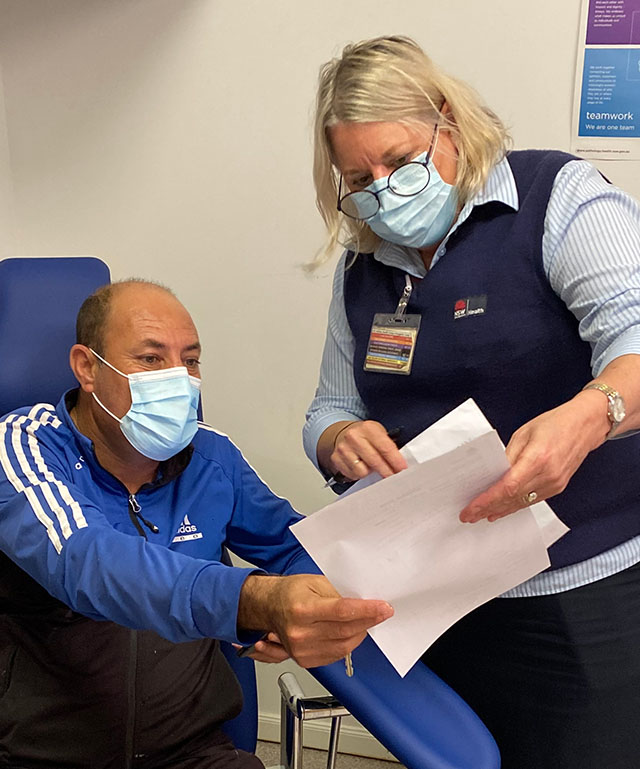People from a refugee background may have low literacy levels. They may not be able to read, even if the information has been translated. Health services should consider this when creating resources and distributing information.
Many NSW local health districts (LHDs) working with newly-arrived communities have developed pictorial resources or spoken language resources.
Examples
Cue cards – visual cues in 50 languages to assist health professionals and clients who have language difficulties.
Source: NSW Multicultural Health Communication Service
Sample pictorial resource – oral health pictorial signs in multiple languages
Source: NSW Health
Sample video resource – a series of short videos that explain various aspects of the Australian healthcare system, spoken in the Ezidi language, Kurdish/Kurmanji.
Source: HealthWISE
Translation services

There is a difference between translations and interpreters:
- Translation is the process of transferring written words or text from one language into another.
- Interpreting is the verbal transfer of speech into another language.
Translators and interpreters are trained and certified in different ways. Not all healthcare interpreters are qualified to perform translations and vice versa.
If a clinician requires written translation of documents for a patient’s care, they should contact their local Healthcare Interpreter Service for assistance. Only professional translators should provide translations of health material.
The following translation services are available within NSW Health:
- NSW Multicultural Health Communication Service – Translation
- Western Sydney Local Health District Translation Service
- South Western Sydney Local Health District – Health Language Services
- Hunter New England Local Health District Multicultural Health Service (provides information about requests for interpreter services and translations)
Resources
Interpreters – Standard Procedures for Working with Health Care Interpreters
Source: NSW Health
Immigrant health translated resources – a directory of translated resources for consumers from trusted Australian health sources.
Source: The Royal Children's Hospital, Melbourne
The NSW Plan for Healthy Culturally and Linguistically Diverse Communities: 2019-2023 – outlines the NSW Health interpreter usage policy.
Source: NSW Health
Speaking with clients with low English proficiency
Source: Centre for Culture, Ethnicity and Health
Health literacy – using teach-back technique
Source: Centre for Culture, Ethnicity and Health